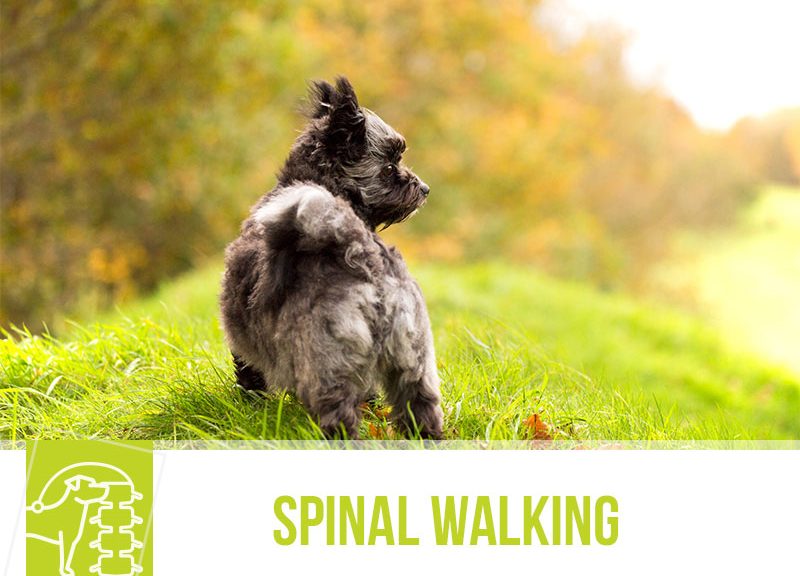Did you know that paraplegic animals with irreversible spinal cord injuries, especially in the lumbar portion, can sometimes recover locomotion?
It might sound a bit impossible – If the communication between brain and the muscles in the legs is severed than how can our pet still walk? That’s where the sensational spinal cord comes in!
The brain and the spinal cord are two more or less separate entities that communicate with each other, and together they make up the central nervous system. The brain controls much more complex functions but the spinal cord has some aces up its sleeve, one of which allows for what is called ‘Spinal Walk’.
Spinal walk is a type of acquired involuntary motor function seen in animals with varying degrees of spinal cord injury, even sometimes in cases of complete injury! In essence, even though the brain is no longer sending any signals to the pelvic limbs, there are specialised structures in the spinal cord that can generate patterns and replicate a functional gait. We call this an involuntary motor function because the hind legs are not being controlled by the brain but instead there is a spinal cord reflex that allows for walking. This type of walking is a bit uncoordinated and jerky but animals are able to walk unaided for as long as they want, and can get themselves back up in case they fall down.
Will all animals with spinal cord injuries develop spinal walk? Unfortunately, which animals will develop the capacity for spinal walking is quite variable. It will depend, for instance, on the type of injury to the spinal cord and if there are other diseases that might affect nervous system structures.
A recent study in dogs that attempted to correlate physiotherapy with acquiring spinal walk has had promising results that show that perhaps physical therapy techniques may aid our lovely pooches to spinal walk. Other studies have attempted to better characterise spinal cord injuries and figure out what treatment best fits what type of injury.
Have questions about spinal cord injuries and treatment options? Give your vet a call, they will be more than happy to walk through the best options for your four-legged buddy!
Would you like to know more about cats and dogs? Check our Feline and Canine Courses:

